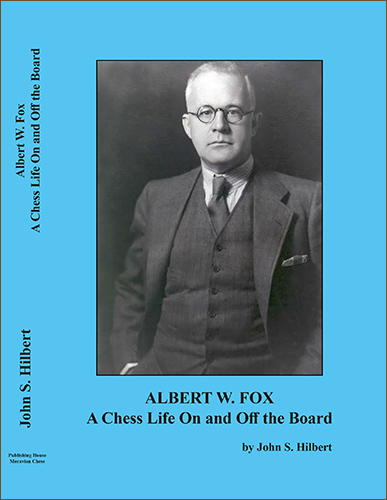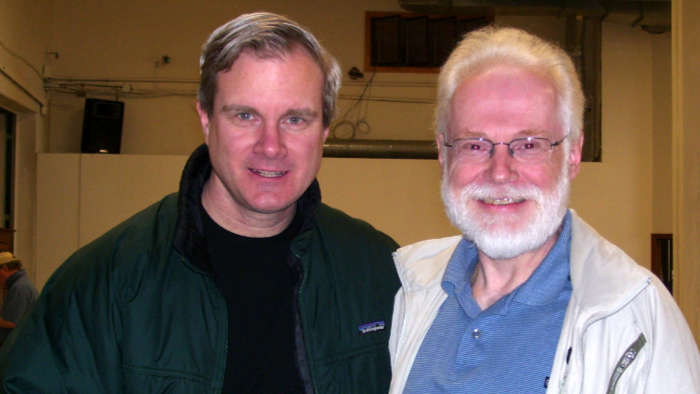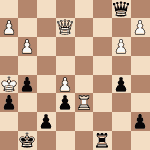Chess historians adore Albert W. Fox: A Chess Life On and Off the Board and respect its author, John S. Hilbert. International Master John Donaldson describes Hilbert as “America’s premier chess historian.” Along with Donaldson, several chess historians provided blurbs for Hilbert’s Fox book.

A Favorite of Chess Historians
For space reasons, some blurbs were shortened. For example, the blurb from Tomasz Lissowski, a chess historian from Poland, appears on the back cover as “This insightful biography of an amateur chess player keeps the reader engaged from start to finish!” Lissowski’s unedited blurb follows:
This is the next installment in the unique series devoted to lesser known chess figures from the history of the game in the USA. This insightful biography of an amateur chess player, who was strong enough to beat Schlechter, Janowski and Chigorin, keeps the reader engaged from start to finish. The reader will find here all the ingredients known from other books by John S. Hilbert: masterful style, vast collection of unknown (forgotten) games with commentaries from the “era”, juicy, colorful quotes from the general and chess press, never before published photographs, micro-biographical notes of the book’s protagonists, facts, anecdotes and historical riddles, all set against the historical background. I have the impression that many readers, having read this book, will want to play a friendly game or discuss the latest developments in politics with Albert W. Fox. The book’s hero excels at making us want to do both.
Political Connections
Often based in Washington, D.C., Albert Whiting Fox was a newspaperman covering national and international matters. Because of his profession, Fox met politicians. For example, he was invited to a reception at President Teddy Roosevelt’s White House. Hilbert details the connections of political and historical figures to chess. Many of his book’s footnotes are about those connections rather than specifically about Fox.
When I provided editorial assistance and proofreading to Hilbert, I developed an affection for his footnotes. One of my favorites is about Joseph D. Redding, because I have been to Redding, California. From Hilbert’s footnote, I learned that the city is named after Joseph’s father Benjamin, “a well-known Central Pacific land agent” (p. 210). Joseph was a Harvard graduate, accomplished chess player, and musical prodigy. The footnote has two of Joseph’s games, including a loss to a young Capablanca.
Theoretically, the Joseph D. Redding footnote is superfluous to the “Clash of Giants: Cambridge Springs 1904” chapter since, as Hilbert wrote, “there is no evidence that [Joseph D. Redding] played any significant role during the [Cambridge Springs 1904] tournament” (p. 211). But such footnotes, where one learns how American history and chess are intertwined, give this book its unique character.
Cambridge Springs 1904
The first major international tournament in the United States in the 20th century was held in Cambridge Springs, Pennsylvania. The winner of Cambridge Springs 1904 was its third youngest player, Frank James Marshall, born August 21, 1877. Marshall scored 13–2 in the 16-player round robin, two points ahead of David Janowski and Emanuel Lasker.
As the tournament’s youngest player, three months younger than William Napier who was also born in 1881, Fox was playing in his first international tournament at Cambridge Springs. Fox scored 6.5–8.5, tied for 10th-11th places. In the last round, Fox lost as White to Marshall.

Cambridge Springs 1904 was the last tournament of Harry Nelson Pillsbury, who died in 1906. The photo of Donaldson and Hilbert was taken in Buffalo, New York, at an auction of chess historian Jack O’Keefe’s materials. At this linked webpage, Nick Pope has a dedication to O’Keefe as well as a free download of Pope’s two-volume set about Pillsbury’s life and career.
While Napier died in 1952 and Marshall died in 1944, Fox lived until 1964. Later in his life, Fox played 20th century greats such as Reuben Fine (1914–1993). Perhaps most inspirational about Fox is that he successfully combined his professional career with chess playing and family life.
How to Buy
In 2022, Publishing House Moravian Chess published John S. Hilbert’s Albert W. Fox: A Chess Life On and Off the Board. It is 620 pages long. For those living in the United States, probably the easiest place to order the book from is USCF Sales, where it retails for $45.95. European purchasers will likely prefer this link.
